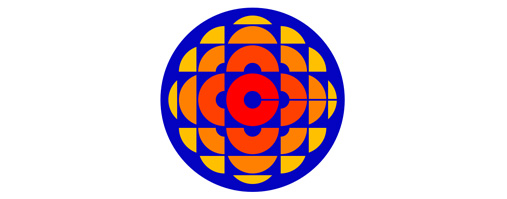
Day 12…
By Denis Carmel
GATINEAU – On day 12 of the hearing into the renewal of the CBC’s broadcasting licences, the Public Interest Advocacy Centre (PIAC) and the Canadian Media Guild (CMG) appearances grabbed our attention.
While PIAC has no real skin in this game (beyond representing Canadian consumers who pay for and watch the CBC), the Guild and the various unions are there to defend its members now and in the future.
From the get-go, John Lawford, PIAC’s executive director and general counsel, proposed the CBC’s licences be reviewed in two years “to line up with implementation of changes outlined in Bill C-10, and any adjustment of the DMEO (digital media exemption order). Only at that time, when digital rules are clear for all, should the Commission set out digital rules or expectations for CBC, including Cancon, to align them with all other broadcasters.”
Lawford was also very critical of the CBC’s application: “In our view, CBC’s current applications show this confusion of purpose and goals, with the result that PIAC-NPF, as representatives of consumers, are here to ask the Commission to resolve this problem in the public interest,” said Pam Dhery, PIAC counsel.
She also pointed out the corporation will likely lose $800 million by 2023 on digital services (such as Gem) according to figures reluctantly released. CRTC chair Ian Scott asked if it’s fair, though, to limit the corporation’s ability to adapt to the majority of Canadians who are shifting to the digital platforms. “Yes, it’s the future but, don’t lose $800 million in doing so, find another way to do so,” he said adding that if the CBC’s Parliamentary appropriations decrease it will have to lay off people, have more repeats and so on.
The chair also asked to elaborate on the proposal in PIAC’s intervention which says “programs made available online should only count towards programming obligations if all the other requirements for linear TV services have been met first.”
“Section 46.1 (of the Broadcasting Act) says that its linear radio and TV broadcasting, so my smarty pants answer is that’s what the Act says so that’s what you have to do first and you build on top of that. Now the CBC is here is asking if they can…” said Lawford who was then interrupted by the chair who said jokingly, “you’ll give me a further response to your smarty pants answer?”
That little exchange is indicative of the tone of the conversation when numerous times, the chair noted that Lawford was answering questions before he asked them. The tone was light but very serious. Both Lawford and Scott were in fine form and seemed to enjoy themselves while the level of the discussion was not light. PIAC thought through its intervention and presentation and it showed, and is worth taking note.
In contrast, the CMG, the union that represents the majority of the CBC/Radio-Canada workers, was less a conversation but a plea to restore a way of doing things with appropriate staffing and funding levels. For example, Kim Trynacity CMG’s CBC Branch president said, “pre-pandemic — while I was still a reporter — I remember almost begging my assignment editor to let me go to a news conference in person. I was discouraged from going because that way I could file more quickly for all platforms. Television news programs are poorly resourced. Some are half an hour, some an hour. In most locations there are no reporters assigned at night and if there are—again the job is to dice and slice the story so it fits on radio, online—and if there’s anything left—television.
“When CBC/Radio-Canada received some additional public funding for 2016–2019, two-thirds of the money went to outside productions instead of reinvestments in news,” she added later.
On Tandem, after a question by commissioner Alicia Barin on the guardrails put in place by the Corporation including the people that work for Tandem and the people in the news, the answer we heard illustrated there is some deep mistrust surrounding the branded content division. “It is unclear to us too, we would like the CBC to provide a list to us too, a lot of this is quite muddy and from our perspective, we don’t have that clear demarcation,” said Trynacity.
On Thursday, the CBC will provide its reply to all these interventions and answer the Commissioner’s last questions, and then this long hearing will be over. On Wednesday, though, the Canadian Media Producers Association makes its case.


